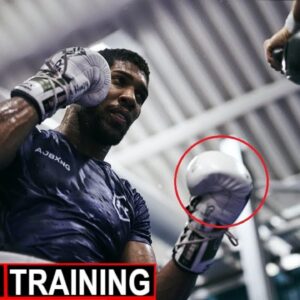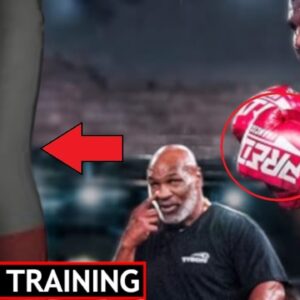In a surprising turn of events, several high-profile celebrities have reportedly agreed to pay seven-figure sums to have their names removed from the ongoing legal battles involving Sean “Diddy” Combs. This unusual move has raised eyebrows across the entertainment industry and sparked discussions about the implications of celebrity endorsements, legal entanglements, and the power of public perception.
The trial surrounding Diddy has been a focal point of media attention, attracting not just the usual gossip columns but also serious news outlets. Allegations against the music mogul have included accusations of misconduct and financial impropriety, which have cast a shadow over his decades-long career in the music and fashion industries. As the trial continues to unfold, more celebrities find themselves inadvertently linked to the controversy due to past collaborations, endorsements, or social connections with Diddy.
For many of these celebrities, the potential fallout from being associated with Diddy has become a pressing concern. In an industry where public image can make or break a career, the decision to sever ties with a high-profile figure like Diddy is understandable. The fear of being dragged into the negative publicity surrounding the trial has prompted several stars to negotiate significant financial agreements to ensure their names are kept out of the spotlight.
The financial stakes involved are substantial. Seven-figure deals indicate that these celebrities are willing to invest heavily in preserving their reputations. It highlights the lengths individuals will go to protect their brand, especially in an era where social media can amplify any association with controversy. The rapid spread of information online means that being linked to a trial of this magnitude could have long-lasting effects on careers, endorsements, and public perception.
Interestingly, this situation raises questions about the ethics of such payments. While it is not uncommon for individuals to seek legal protection or to distance themselves from negative associations, the idea of paying to remove one’s name from a trial suggests a deeper issue at play. It begs the question: how far are celebrities willing to go to maintain their public image? And at what cost? Some critics argue that these payments reflect a troubling trend in which reputation management takes precedence over accountability and transparency.
The implications of this trial extend beyond the immediate participants. It serves as a stark reminder of the precarious nature of fame and the constant scrutiny that celebrities face. The pressure to maintain a flawless public image can lead to drastic measures, including financial deals that may seem extreme to the average person. However, in the high-stakes world of entertainment, where reputations can be built or shattered overnight, such actions might be seen as necessary.
As the trial continues to garner attention, the question of accountability looms large. While celebrities are often quick to distance themselves from controversy, it raises the issue of how they engage with their peers. Should they be more vigilant in their associations, particularly with figures facing serious allegations? The entertainment industry has often been criticized for its handling of misconduct allegations, and this situation only highlights the need for a more conscientious approach to relationships and collaborations.
Public sentiment plays a significant role in how these situations unfold. Fans and followers are becoming increasingly aware of the dynamics at play and are more likely to hold celebrities accountable for their associations. In this context, the decision to pay for name removal may also be seen as an admission of guilt or complicity, further complicating the reputations of those involved. The backlash can be swift, with social media amplifying any perceived missteps.
Legal experts have weighed in on the implications of these financial agreements, suggesting that they may reflect a growing trend of celebrities opting for “reputation insurance.” This concept involves investing in measures that shield one’s image from damage, often at a significant financial cost. While such strategies may provide short-term relief, they do not address the underlying issues that lead to controversies in the first place.
As the trial unfolds, observers are keen to see how the outcomes might affect the careers of those who have paid to dissociate themselves from Diddy. Will they be able to successfully navigate the fallout and maintain their public personas, or will the mere act of severing ties raise further questions about their integrity? The entertainment industry operates on a delicate balance of perception and reality, and any misstep can have profound consequences.
In a broader context, this situation serves as a reminder of the complexities of celebrity culture. While fame can bring immense opportunities, it also comes with a unique set of challenges. The decisions made by these celebrities to pay for name removal highlight the precarious nature of their positions and the lengths they will go to protect their brands. It underscores the idea that in the world of fame and fortune, reputation is often paramount, sometimes even more so than personal integrity or accountability.
As the trial progresses, the ongoing narratives surrounding D
Watch video:
News
BRAWL! Jake Paul vs. Mike Tyson • Full HEATED Face Off
In recent months, the world of combat sports has been buzzing with anticipation for a matchup that many never thought would come to fruition: a potential showdown…
Francis Ngannou Training in Mike Tyson’s GYM! [2024] HD
In a remarkable development that has captured the attention of combat sports fans worldwide, heavyweight MMA champion Francis Ngannou has been spotted training in Mike Tyson’s legendary…
AJ LOOKS SCARY! | Training Motivation [2024]
As heavyweight boxing continues to captivate fans around the world, Anthony Joshua has once again become the center of attention. Recent footage has emerged showcasing Joshua’s intense…
*Leaked* MIKE TYSON SPARRING FRANCIS (While he Trains for AJ Fight)
In the world of boxing, few matchups generate as much excitement and speculation as the potential clash between heavyweight legends Mike Tyson and Anthony Joshua. As fans…
*LEAKED* FRANCIS LOOKS SCARY! | Training Motivation [2024]
In the world of mixed martial arts (MMA), few fighters can command attention like Francis Ngannou. Known for his devastating knockout power and relentless fighting style, Ngannou…
*LEAKED* FURY IN SHAPE? | Training Motivation [2024]
In recent weeks, leaked footage of Tyson Fury’s training sessions has surfaced, sending shockwaves through the boxing community and reigniting discussions about the heavyweight champion’s physical condition…
End of content
No more pages to load









